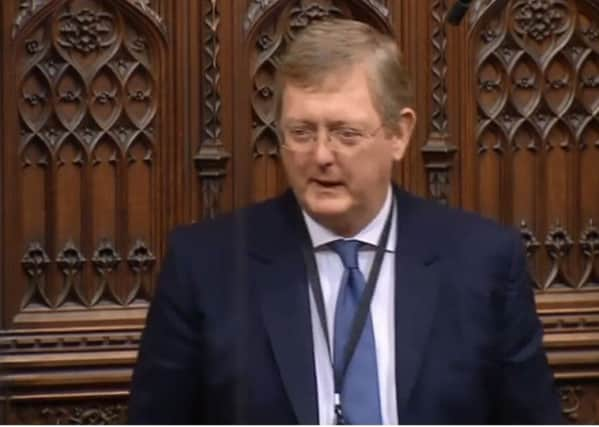Ex-NIO adviser proposes new way to deal with Troubles killings – neither amnesty nor status quo


The man who until seven weeks ago was the key political adviser to every Tory Secretary of State since 1992 has expressed concern at some of the proposals for dealing with Troubles killings.
Lord Caine, who was not retained as a special adviser by current Secretary of State Julian Smith when he took over in July, spoke out publicly to propose a alternative to either the current situation or a full amnesty for those who committed crimes before 1998.
Advertisement
Hide AdAdvertisement
Hide AdThe veteran Conservative, who once worked with David Cameron in the Conservative Research Department, said that he had discussed the plan with Northern Ireland’s Attorney General, John Larkin.
The former special adviser’s comments appeared to be a repudiation of the proposal by some of his senior party colleagues that there should be a statute of limitations preventing prosecutions of former soldiers who served in Northern Ireland, a de facto amnesty which is likely to then lead to a widespread amnesty for all sides.
Alluding to widespread unionist concerns about the current focus on former soldiers and the small number of prosecutions involving former members of the IRA, Lord Caine said: “We must ensure that there is not a disproportionate focus on former members of the security forces, to whom we own an enormous debt.
“This is a complex and difficult area. I have always believed that everybody should be accountable to the law and I have a number of concerns about some of the remedies that have been suggested in this respect.”
Advertisement
Hide AdAdvertisement
Hide AdSetting out his proposal for an alternative to either the current situation or an amnesty, he said: “One possible way forward, which I have discussed with the Attorney-General for Northern Ireland at length, might involve modifications to Section 3 of the Criminal Law Act (Northern Ireland) 1967 around what constitutes reasonable self-defence.
“The purpose would be to give clearer legal meaning to the moral distinction between somebody who commits a split-second error of law while carrying out their duty and somebody who sets out with the clear and deliberate intention to commit murder.
“Now is not the appropriate time to pursue this in detail, but I hope to return to this matter on a future occasion and I hope that my noble friend the minister will undertake to look at this option seriously.”
Responding, the NIO’s minister in the Lords, Lord Duncan, said that Lord Caine had raised “interesting points...and I will look at them with some great care”, adding that “there is merit in doing so”.
Advertisement
Hide AdAdvertisement
Hide AdAlthough Lord Caine was made a peer by David Cameron in his resignation honours list in 2016, a Cabinet Office rule dictated that he was not allowed to speak in the chamber while serving as a government adviser and so Monday’s comments were made in what was his maiden speech.
Recalling his time as an adviser, Lord Caine said he was proud to have played a role in one of the “seminal moments” of Mr Cameron’s time in office when he helped draft the then Prime Minister’s speech responding to the Saville Inquiry into Bloody Sunday, where he famously described the Paratroopers’ actions in Londonderry as “unjustified and unjustifiable”.
Lord Caine said he was an “unashamed and unapologetic unionist who believes that the best future for Northern Ireland is, and always will be, within a stronger United Kingdom. I am, though, a unionist who deeply values and respects nationalism and who wants the closest possible relationship with our friends and neighbours in the Republic of Ireland, while always respecting the constitutional proprieties”
The peer praised Lord Empey as someone who “embodies all that is best within Ulster Unionism”.
Advertisement
Hide AdAdvertisement
Hide AdHe said that although he was “an instinctive Brexiteer” he had voted Remain out of a concern as to the implications for the Union of leaving the EU.
The peer also said that his route into the House of Lords as a Tory was uncommon, saying “I was not born into the Conservative Party; in fact I was born in a staunchly working class area of Leeds called Harehills where my father was a builder and my mother was a hairdresser”.